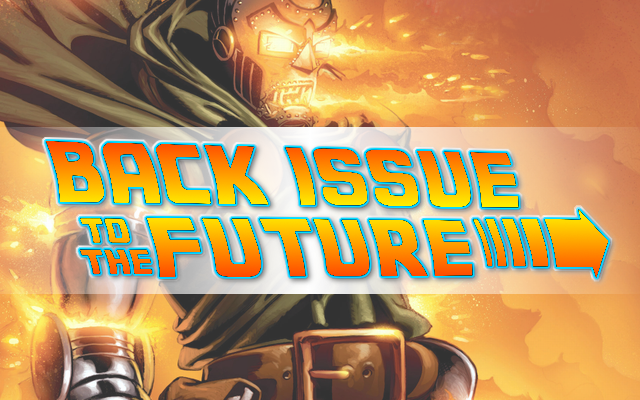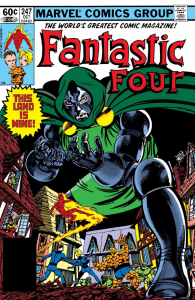♫ Regrets
I’ve had a few
but then again
too few to mention ♪
Regret. A fundamental human emotion that cripples some or drives others forward to new action. Whether it is a question of our education or careers, family, or friends we’ve lost touch with, lost opportunities and botched decisions can linger and eventually become the death-bed laments of “What would I have done differently?” Few among us can say they have no regrets; Frank Sinatra famously brushed his off in the Paul Anka-penned “My Way,” but even in a song about facing down life’s inequities and tribulations with bravado and vigor, Ol’ Blue Eyes was far more humble than storied Marvel villain Doctor Victor Von Doom.
Mark Waid, well known for storied runs on Captain America, The Flash, and JLA, as well as the now iconic DC mini-series Kingdom Come, and Mike Wieringo, Waid’s artistic collaborator on The Flash, had taken over as the creative team of FF the year prior with #60, and they’d had a strong start, despite artist Mark Buckingham stepping in for two fill-in issues already. Waid was nailing the family dynamics of the team, and Ringo’s distinctly ‘comic-book’ style was working as well here as it did in his creator-owned fantasy series Tellos. Their first arc featuring both solid superhero action against an “equation” Mr. Fantastic doppelganger and more mundane and humorous interludes, such as lovable idiot Johnny Storm being in charge of the Fantastic Four’s business dealings.
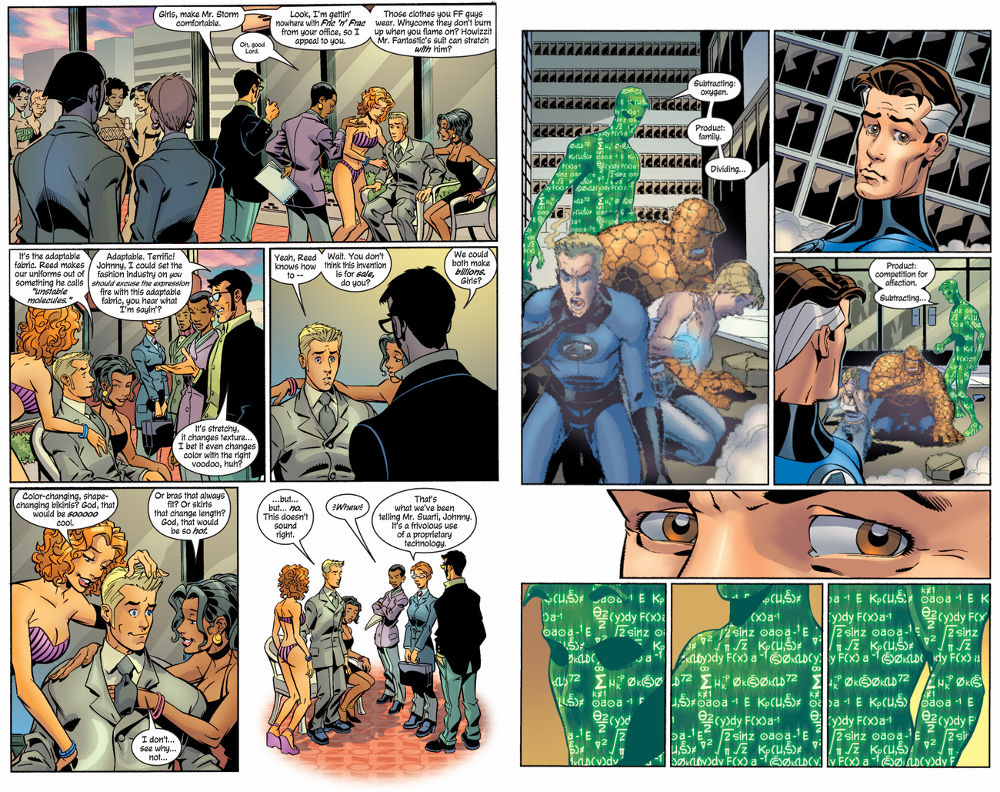
And we hadn’t seen Doctor Doom for a while. Maybe a few years since he had a proper feature story of his own, so when Fantastic Four #67 rolled around in 2003, it was plausible that Marvel was going in a new direction. Its striking cover depicts Doom’s armor on a pyre and the 1-2-3-4 front page recap burns away revealing a simple adage: “A man’s priorities can change…” Doom was turning over a new leaf, abandoning his once eternal quests for power, prestige, and revenge to settle down, and reclaim the innocence of his youth. After all, hadn’t fellow comic book antagonist Lex Luthor changed for the better, becoming the DC Universe’s U.S. president 2000-2004 (Writer’s note: he deserved a second term). Why couldn’t these serial heroes and villains evolve? Spider-Man wasn’t struggling with rent anymore. Superman was married. The status quo that always seemed to reassert itself over the years seemed malleable.
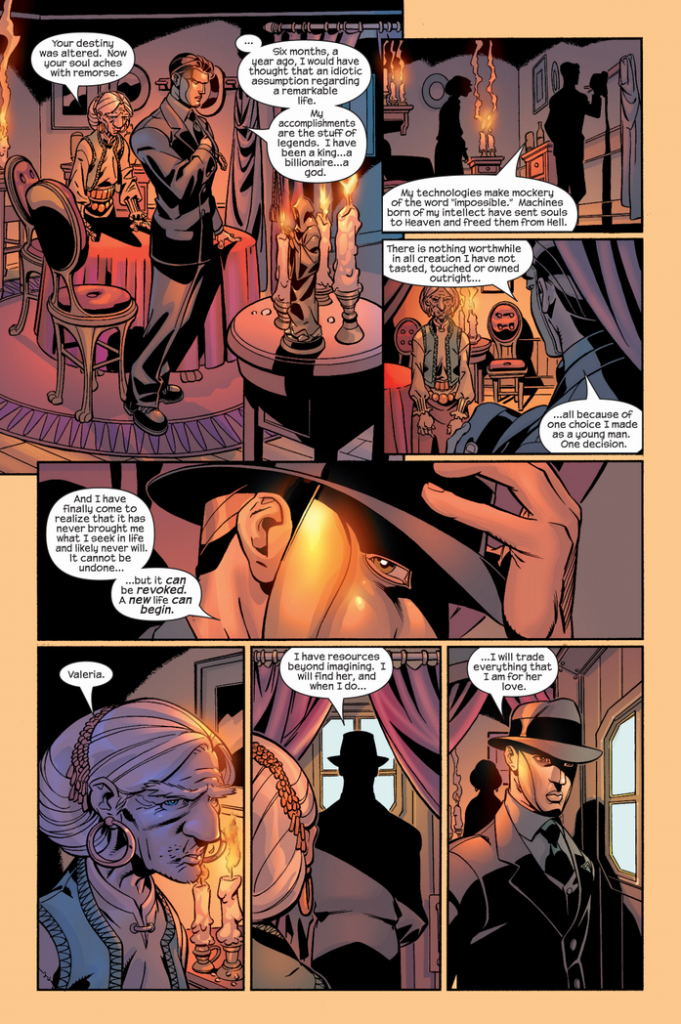
‘Unthinkable’ picks up with Doom traveling America, besuited, seeking Valeria, the lost love of his youth, visiting various fortune tellers and soothsayers, disparaging their faux-magics and their inability to help him find her. (Notably, Valeria is the same name Doom gives to Reed and Sue’s daughter when he delivers her earlier in this FF series). We learn that, prior to his meeting Mr. Fantastic, Victor had a seemingly idyllic childhood traveling Europe, one he shared with Valeria, tinkering with technology, dabbling in magic, before leaving to America on a university scholarship and eventually meeting disaster in the experiment that ruins his face. He never sees her again, their shared path splintered by his commitment to science, a choice that has haunted him ever since.
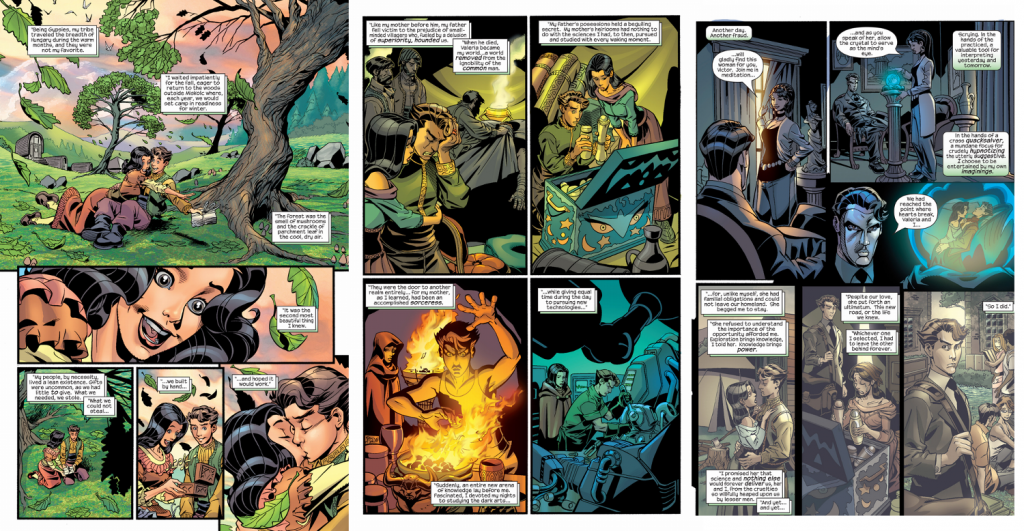
At the start, you’re waiting for the twist. “How will this Victor revert to the one I’m familiar with?” Doom is a narcissist; can narcissists even love at all? But as the pages flip by, the thought sets in that, no, Marvel’s committing to this. Doctor Doom is retiring. After countless drubbings at the hands of the Fantastic Four, he is hanging up the cape, mothballing the armor. Nostalgia and regret permeate the panels as he muses on the heights of his technological accomplishments and the hollowness of those victories. How he’ll spend every one of his more than considerable resources to find Valeria and right the errors of his past.
When he finally finds her, she rejects him, aware of the atrocities he’s committed in his pursuit of world domination, but he begs a second chance, assuaging her fears, convincing her, and the reader that she is his only path forward now.
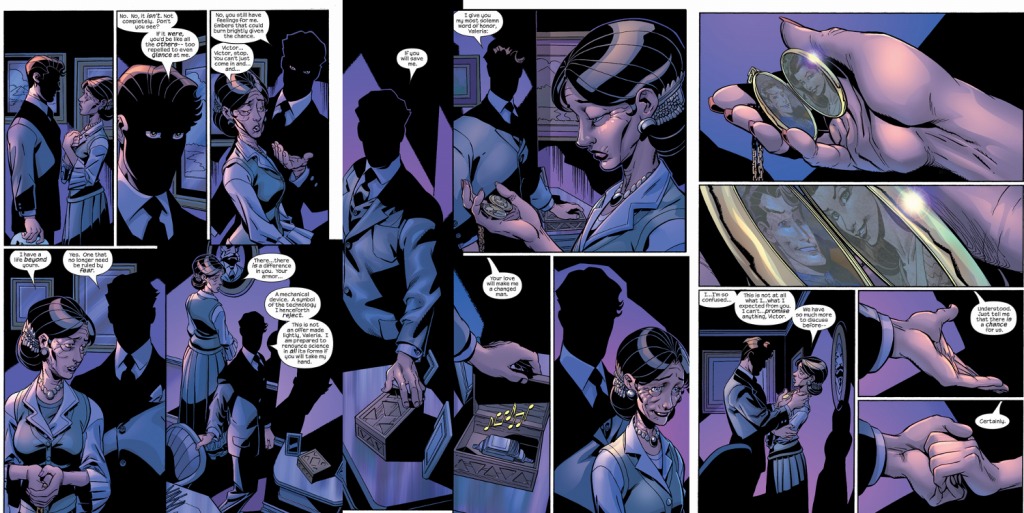
All issue, Doom talks about his scientific prowess, but also how technology has failed him and he now rejects it. Rues it.? What if he, in his youth, chose sorcery instead of science? What if he could choose again…?
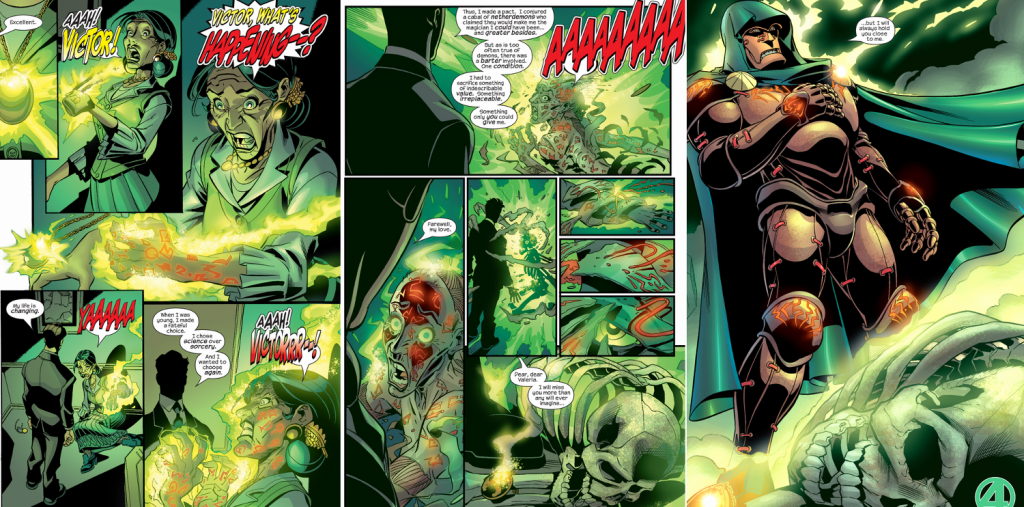
Of course, if you’ve read Marvel comics in the intervening decades, you know that yes, the status quo reasserted itself. ‘Unthinkable’s Doctor Doom ends up using his horrific ‘skin armor,’ and the aforementioned baby Val as a familiar to work his dark magic against the Fantastic Four, and Doctor Doom’s vainglorious villainy continues on under the watch of other creators to this day. The best and most dangerous villains are the heroes in their own mind. Not driven by nihilism or hate or rage, but by the sincere belief that they are right, perhaps infallible, and that society would be better off under their ‘guidance.’ We see it in gems like Dwayne McDuffie and Paul Pelletier’s ‘The End’ (FF 551-553), or Secret Wars (2015) by Jonathan Hickman and Esad Ribic, or even as recently as Ryan North and Iban Coello’s Fantastic Four 7/700 from earlier this year. Doctor Doom is simply one of the best comic characters, so there are countless others from 60 years of Marvel history; I’m sure you have your own favorites (Maybe FF #247 pictured above?). Mark Waid and ‘Ringo would continue on FF for a couple of years, with some editorial hiccups and a finale where they meet Jack Kirby. It’s great, give it a chance sometime.
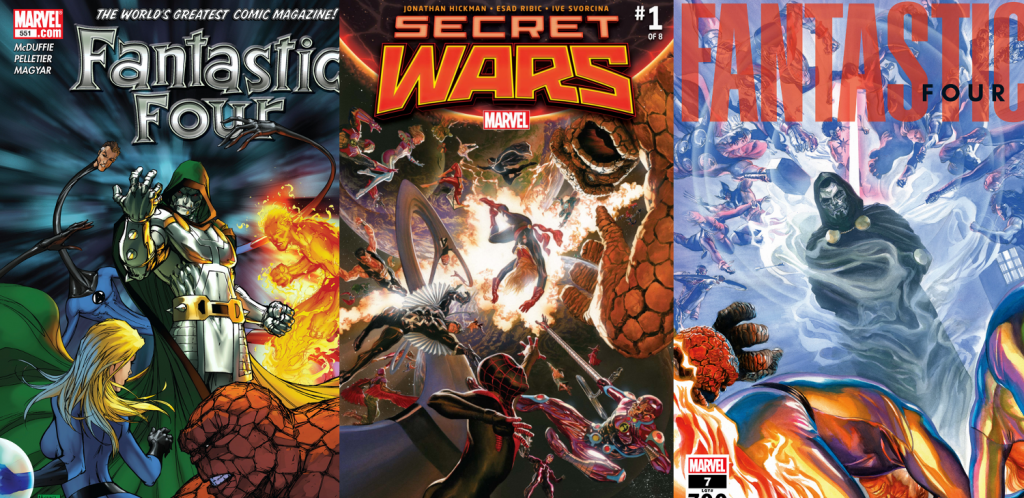
FF, the self-styled “World’s Greatest Comic Magazine” has been neglected by Marvel in recent years, really right up until North and Coello’s refresh started last year, and like Superman, the Fantastic Four’s brand of generally wholesome sci-fi and super heroics has sadly given way to ‘edgier’ and morally greyer fare, but consider this a reminder that when the books of the day disappoint, there are still plenty of great stories from years past waiting for you in the back issues.
And of course, the question stands about regrets. What choices would you make again? What choices can you make again? Work? Love? Florida timeshare? Or are you one of the fortunate few waking up totally content. Since none of us can channel Doom’s terrible power to unmake the past, a favorite band of mine, Toad the Wet Sprocket (yes from the Monty Python sketch), has a song Starting Now, with an apt lyric about letting go and moving on. I’ll leave you with that.
♪ The best time to changе
Was many years ago
Next best thing
Is starting whеre we are ♫


